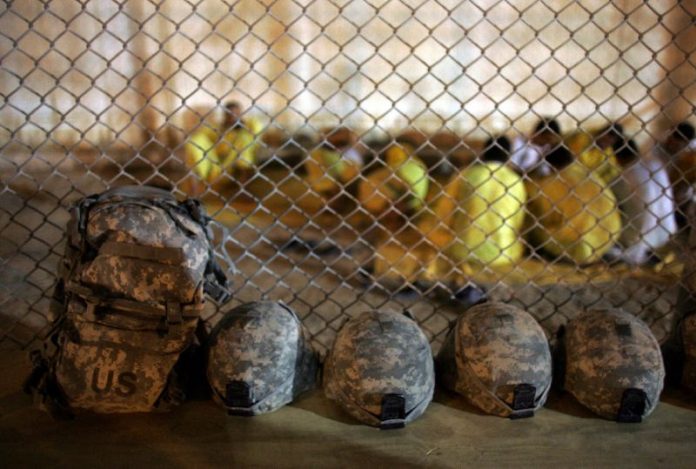
WASHINGTON – Federal inmates made thousands of defective combat helmets for the U.S. military at a prison facility that was rife with problems, including the use of degraded armor and the submission of preselected helmets for inspection to make sure they would be approved, according to a newly released investigative report.
A Justice Department Inspector General summary report released Wednesday said faulty helmets were made by Federal Prison Industries (FPI), for the Army and the Marine Corps. The U.S. government-owned company operates under the trade name UNICOR and served as a subcontractor for ArmorSource, an Ohio company that was one of four defense firms to win an estimated $30 million contract in 2006 for the Army’s then-new Advanced Combat Helmet. Separately, ArmorSource won multimillion-dollar contracts for the Marine Corps Lightweight Helmet, which has a slightly different design.
The Army disclosed in 2010 that it was recalling 44,000 helmets, including some in use in Afghanistan, citing an open federal investigation of ArmorSource. Army officials said at the time that the recall was issued after the Justice Department informed them of evidence that some of the helmets were produced using unauthorized materials and practices that could reduce protection.
The Justice Department announced in March that it reached a $3 million false-claims settlement against ArmorSource, and noted that FPI was a subcontractor. The new report states that FPI made helmets that had unauthorized or degraded materials, expired paint and other deformities. For example, fragments of Kevlar and dust were used to fill parts of helmets. The serial numbers on some helmets also were altered, the report said.
The inspector general also cites the Defense Contract Management Agency, which was supposed to provide oversight for the military. Inspectors did not conduct reviews, lacked training and submitted false reports in which they said shipments of helmets had been tested, according to the IG report.
“At least in one instance an inspector certified the lots as being inspected over a fax machine,” the report said.
A Defense Department official, speaking on the condition of anonymity to discuss specifics of the case, said the Pentagon is reviewing the findings for future action. The report said two investigations were conducted jointly involving the Justice Department Inspector General, the Army and the Defense Criminal Investigative Service, which carries out criminal inquiries for the Defense Department Inspector General.
Overall, 126,052 Army helmets were recalled, and monetary losses and costs to the government totaled nearly $19.1 million, according to the report. An initial shipment of Marine Corps helmets resulted in a quarantine of 23,000 and a halt to additional deliveries.
Federal prosecutors decided not to press charges, either at ArmorSource or at the FPI plant in Texas, the report said. Peter Carr, a Justice Department spokesman, said that as a matter of policy, the department does not explain why charges haven’t been filed.
Paul Garcia, the chief contracting officer at ArmorSource, said Wednesday that the issues involved in the case are “old,” and declined to comment further. ArmorSource continues to make U.S. military helmets, announcing in May that it had won another contract with the Marine Corps for 10,000.
Justin Long, a spokesman for the Bureau of Prisons, said in a statement that “fortunately, and most importantly,” the investigation found that no U.S. troops were killed or injured as a result of what occurred at the Beaumont prison, which no longer has a manufacturing plant. The report, however, doesn’t quite say that. Rather, it states that the investigations “did not develop any information” to indicate that U.S. troops were killed or injured because of the helmets. Pentagon officials said Wednesday that they are still researching the issue.
Long said that FPI is committed to meeting or exceeding all quality-assurance standards for the Pentagon, and made sure that no Marine Corps helmets manufactured in Beaumont made it to the military.
The Justice Department said in March that information in the case emerged when two whistleblowers who worked for FPI, Melessa Ponzio and Sharon Clubb, filed complaints. In a 2010 lawsuit filed against ArmorSource, they said they were plastics supervisors who acted after their bosses refused to respond to objections they raised about how the helmets were made. They received $450,000 of the $3 million settlement through a provision in the federal False Claims Act that allows them to sue on behalf of the government any individuals who falsely receive government money.
(c) 2016, The Washington Post · Dan Lamothe


